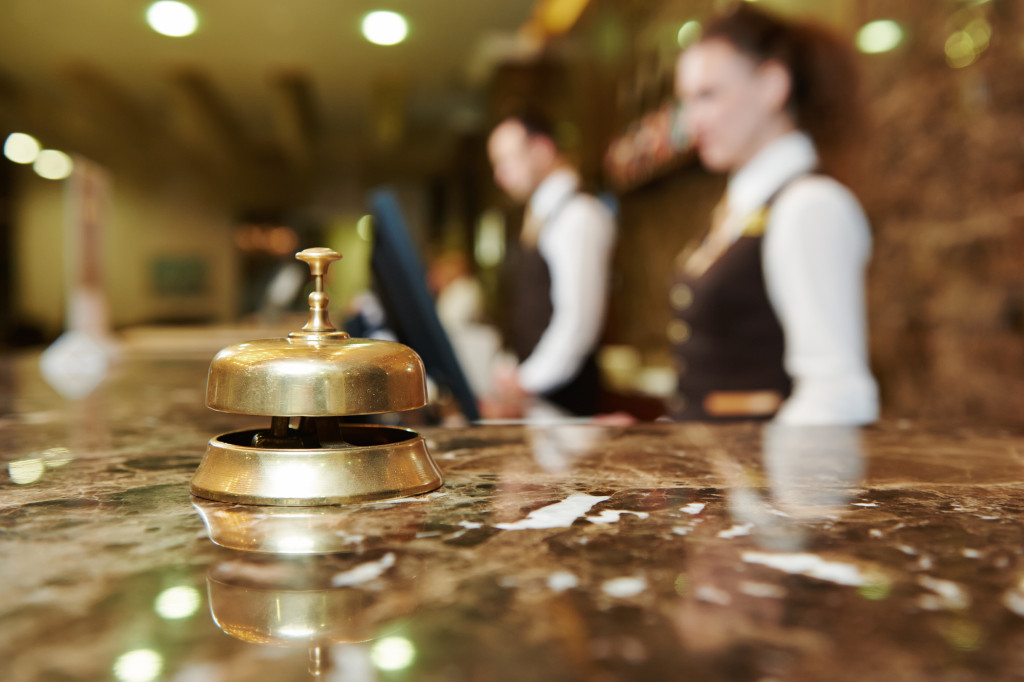Although the world is reopening, hotels still have a long way to go before achieving their pre-COVID feat. They need to increase their revenues and profit margins fast while spending a lot on their operations.
How can hotels find balance? They can identify the biggest sources of expenses and learn ways to bring the numbers down:
1. Cleaning Supplies
In hotels, cleanliness is queen. Because of this, establishments spend a ton on supplies alone. The data show that luxury hotels could end up allocating as much as $9 billion on equipment and cleaners. The average ones spend less, but a million dollars, at least, is still not a cheap expense.
The COVID-19 pandemic only increased the spending. According to Hospitality Net, extra hygiene measures could boost the cost by around $130,000 annually.
Hospitals might lower the cost of cleaning with these ideas:
- Outsource the Job – if you are in charge, use it to your advantage. Outsource the cleaning. Think outsourcing is too expensive? Not when you compare it to the expenses listed above. You can transfer this particular liability to a commercial cleaning company that works on its own and charges accordingly. They tend to have experience in the best ways to clean.
- Reduce Bottles – Purchase products in bottles that last longer. Buy less and buy more often. Don’t stock up on everything. That way, you will save money through fewer units purchased. If there are certain items you use a lot of, purchase them in bulk but only when the price is right.
- Find Alternatives to High-End Products – We all know cleaners can make or break an establishment, and cheap products will give your customers more reasons to complain. However, we all know that spending $400 on cleaner every month is excessive. Shop around to look for more affordable products that will still allow you to maintain your establishment’s image.
2. Maintenance
In hotels, everything needs to look brand new all the time. This requires a ton of effort and spending. A single room’s fixture can cost as much as $3,000 annually, not including the installation fees! A light bulb can be as pricey as $10. Considering how many windows and other materials you should maintain, this is a major price tag.

Hotels can lower this expense by purchasing all fixtures and equipment in bulk. If you can hire an individual who knows how to properly install, maintain, and dismantle the lighting system, do it! Individuals out there can easily find alternatives to these items online. They can save your establishment thousands every year.
You can also maximize tax benefits, such as declaring depreciation expenses. This will reduce your taxable income by portraying the equipment’s value to be lower. Otherwise, explore the concept of cost segregation, which is a way to reclassify certain assets for tax purposes.
3. Staffing
Hotel staff costs include all costs related to employing them: their salary, benefits, and training expenses. According to Hotel Management, the average hotelier spends around 50 percent of their operations expenses on staff alone. This is a huge sum that might not even account for the cash spent on benefits and training.
If you want to cut down on these expenses, here are a few suggestions:
- Invest in Your Best Members – This may sound counterproductive, but in reality, it could cost your business more when you lose the most productive of the team. The amount is equivalent to as much as twice the employee’s salary. Learn to keep these people by providing better benefits and training, satisfying them and making them stick around.
- Hire Temp for Seasonal Jobs – Consider hiring temp services for high-turnover roles, such as maids and people who will only be working during the busy season.
- Use Technology – Technology is changing lives by making it easier to complete everyday tasks at work or home. The same goes for hotels. There are new apps every day that help running a hotel much smoother by automating certain tasks. For example, travel apps such as TripCase and FlightTrack 5 allow hotels to manage guest trips by sending them updates on their flights and offering alternative options for delayed flights.
The hospitality industry is competitive, requiring businesses to stay innovative and on their feet at all times. One of the best ways to do this is by cutting down on ongoing expenses like maintenance, staffing costs, products, etc. This can be done by finding more affordable alternatives for high-end products, hiring temp employees during peak seasons, or using technology to your advantage. With so many options available, the possibilities are endless.

